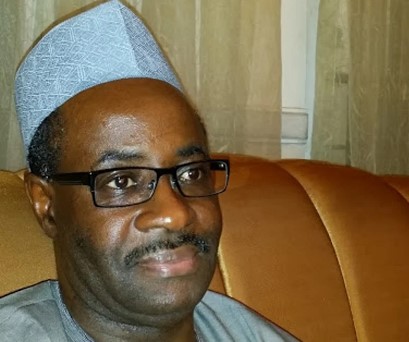The Nigerian Federal Government has announced its readiness to commence the implementation of the 2025 national budget, christened the “Budget of Restoration,” by the end of September 2024. This announcement comes as the execution of the extended 2024 fiscal plan nears completion, with reported progress of approximately 80%. The ₦54.99 trillion budget is designed to stimulate economic growth, enhance public services, and attract investments across key sectors of the Nigerian economy. The Director-General of the Budget Office of the Federation emphasized that effective execution and strict adherence to fiscal discipline will be crucial for the success of the 2025 budget. The government also highlighted its commitment to citizen participation and transparency, recognizing the public’s ownership of national resources. Initiatives are underway to translate budget documents into local languages, simplify technical jargon, and empower communities to hold the government accountable for its fiscal performance.
The 2025 budget focuses on addressing critical sectors, boosting economic growth, and improving public services. It aims to achieve these objectives through various strategies, including ward-based development programs across 8,809 wards, tax reforms to enhance revenue generation, strict fiscal discipline to ensure efficient resource allocation, and innovative partnerships like the $30.9 million Nigeria-Japan start-up initiative to foster technological advancement and entrepreneurial growth. The budget also allocates a substantial sum, N14.3 trillion, to debt servicing, underscoring the government’s commitment to meeting its financial obligations. However, challenges remain, including setting realistic oil revenue targets considering the volatility of global oil prices, addressing the fiscal implications of the Petroleum Industry Act, enhancing transparency in tax credit schemes and project financing, and prioritizing debt servicing.
The government acknowledges the crucial role of data and evidence-based decision-making in effective governance. The Minister of Budget and National Planning emphasized the importance of basing policies and programs on factual information rather than speculation, highlighting data as the bedrock of responsible governance. The Statistician-General of the Federation echoed this sentiment, advocating for greater investment in statistical systems and improved public understanding of the role of data in governance. He acknowledged existing challenges, including underfunding, outdated tools, and limited survey sample sizes, which affect the precision of Nigeria’s national statistics. However, he assured that the National Bureau of Statistics (NBS) adheres to international best practices, guided by technical expertise from the United Nations and the World Bank.
To enhance the reliability and accessibility of national statistics, the NBS is implementing several initiatives, including statistical literacy programs to educate the public on data interpretation and usage, improved data visualization tools for easier comprehension, a revamped website for better access to information, and increased engagement with civil society groups to promote data-driven advocacy. These efforts aim to strengthen the statistical infrastructure and foster a culture of data-driven decision-making in Nigeria. The government’s emphasis on data transparency and accuracy is crucial for effective policy formulation, monitoring, and evaluation, as well as for holding the government accountable for its performance.
While the government expresses optimism about the 2025 budget’s potential to stimulate economic growth and improve public services, potential challenges loom. The possibility of extending the budget into 2026 due to slow capital project execution, procurement delays, and technical issues with the cash-planning portal raises concerns about the timely and effective implementation of the budget. These issues highlight the need for robust project management, streamlined procurement processes, and efficient cash planning mechanisms to ensure that the budget’s objectives are achieved within the stipulated timeframe. Previous stakeholders’ engagements have identified these challenges, emphasizing the need for proactive measures to mitigate potential delays and ensure efficient budget execution.
The 2025 “Budget of Restoration” represents a significant step in Nigeria’s economic development trajectory. Its success hinges on effective implementation, fiscal discipline, citizen engagement, and data-driven decision-making. The government’s commitment to transparency, accountability, and citizen participation is crucial for building public trust and ensuring that the budget serves the best interests of the Nigerian people. Overcoming the identified challenges, particularly in capital project execution and procurement processes, will be critical for realizing the budget’s full potential and achieving its ambitious goals of stimulating economic growth, improving public services, and setting Nigeria on a path towards sustainable development. The government’s focus on strengthening statistical systems and promoting data literacy further underscores its commitment to evidence-based policymaking and transparent governance.


